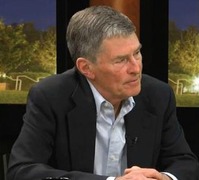Regional Cooperation is Key to Sustainable Suburban Development
WIlliam R. Dodge, author of Regional Excellence tells "Randall Lewis Seminar Series" host Ron Loveridge that local and regional governments need to work more closely together to foster long-t…
January 13, 2015 (PRLEAP.COM) Business News
January 13, 2015 - Local governments can no longer rely on Congress or state legislatures to bail them out of common problems. For that reason, "regions have become the new 'local' in dealing with common sorts of challenges," said William R. Dodge, author of "Regional Excellence," and a leading thinker and facilitator of building regional collaboration.Dodge talked about the growing importance of regional cooperation as part of the continuing Randall Lewis Seminar Series presented by the UC Riverside School of Public Policy's Center for Sustainable Suburban Development and featured in the online video business magazine, California CEO. Dodge explained to the Center's Director and former longtime Riverside Mayor, Ron Loveridge, that building regional cooperation doesn't happen in a flash. "Regional cooperation is the pursuit of the marathoner, not the sprinter." Dodge said. "It takes long and difficult efforts, and even if you succeed and often you do, no one offers any thanks for what you have been able to accomplish."
Regions, he said, are now more important than ever because they have become economic powerhouses. They also have the collective resources and people to better deal better with the thorniest of issues in a large geographical area than any one local government could do on its own. It's hard, however, to find shining examples of excellence in regional governance in the U.S. Dodge agreed with Loveridge that Minneapolis-St. Paul and Portland, Oregon are among the few exceptions with their voter approved regional governments empowered to carry out directives enabled by fees and taxes.
"The most useful work going on in regional cooperation is happening overseas." Dodge said. "We do not make a great deal of investment in this country in coming up with new models for addressing common challenges like regional ones. But overseas, they create research institutes, they undertake demonstrations, they create new forms of regional governance, and I think in many ways they're working for them."
Such wide-scale success will elude Southern California until regional leadership emerges. We need what Dodge calls "regional citizens" to guide local leaders through controversial issues and new approaches to deal with those issues. But, Dodge intimated it'll likely first take a crisis where coming together is much more powerful than doing things alone.
As all sorts of challenges hit local governments at one time, Dodge said we can't afford to muddle through and not get it right the first time. "We have to reach a comfort level with sharing sovereignty. If we are going to succeed in dealing with common sort of challenges, we're going to have to differentiate between what we can do alone and what we need to do to come together cooperatively to do it."
It all starts, he said, with a handful of people willing to make a commitment.

